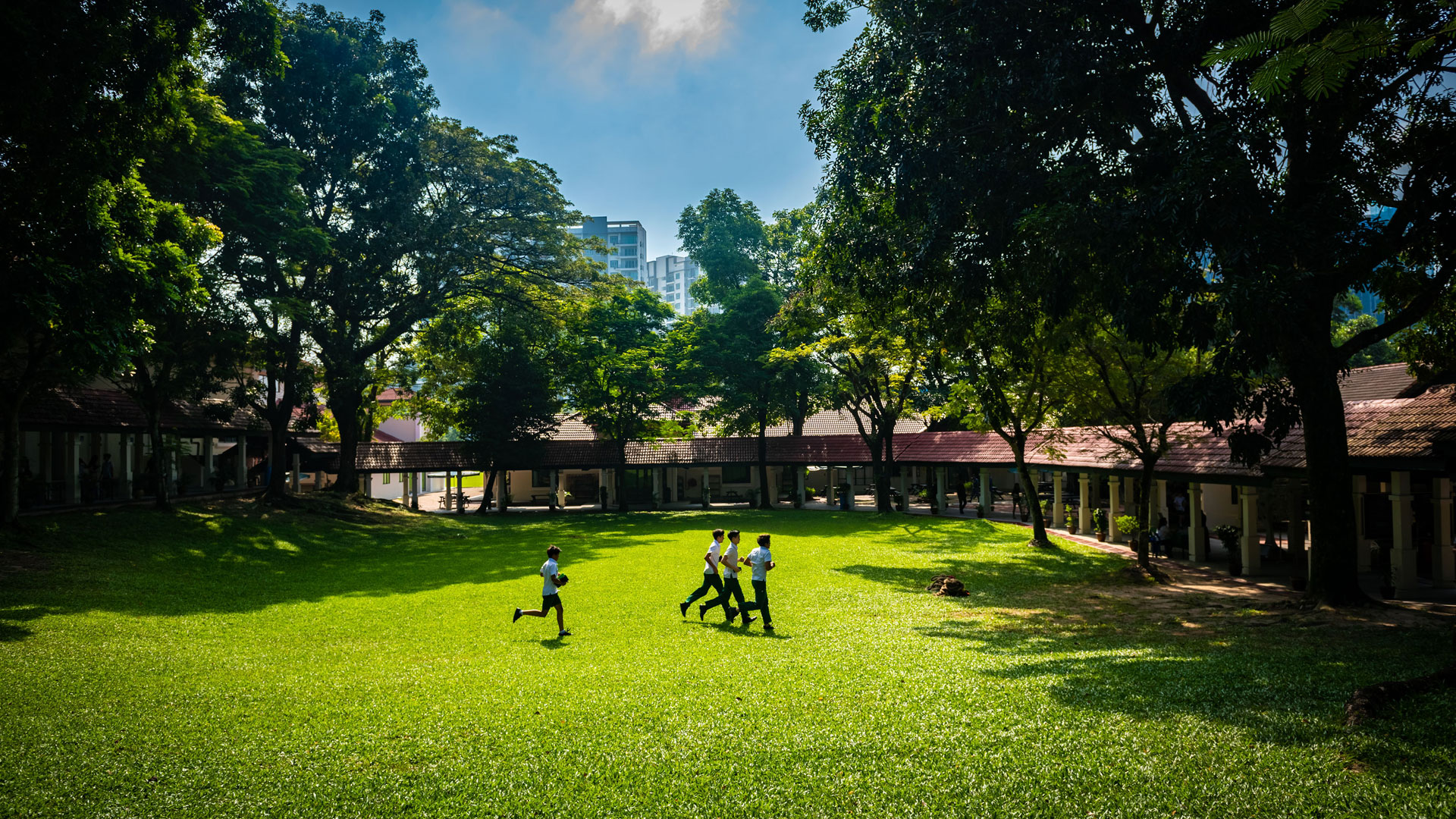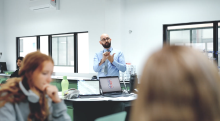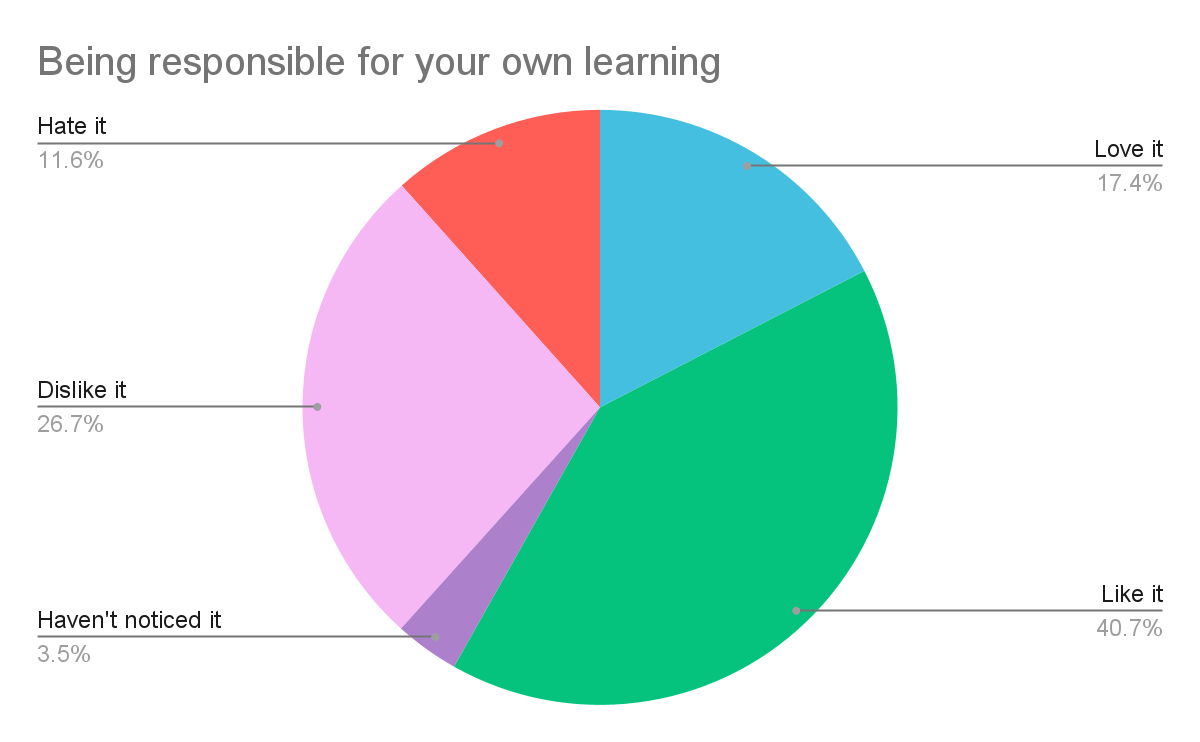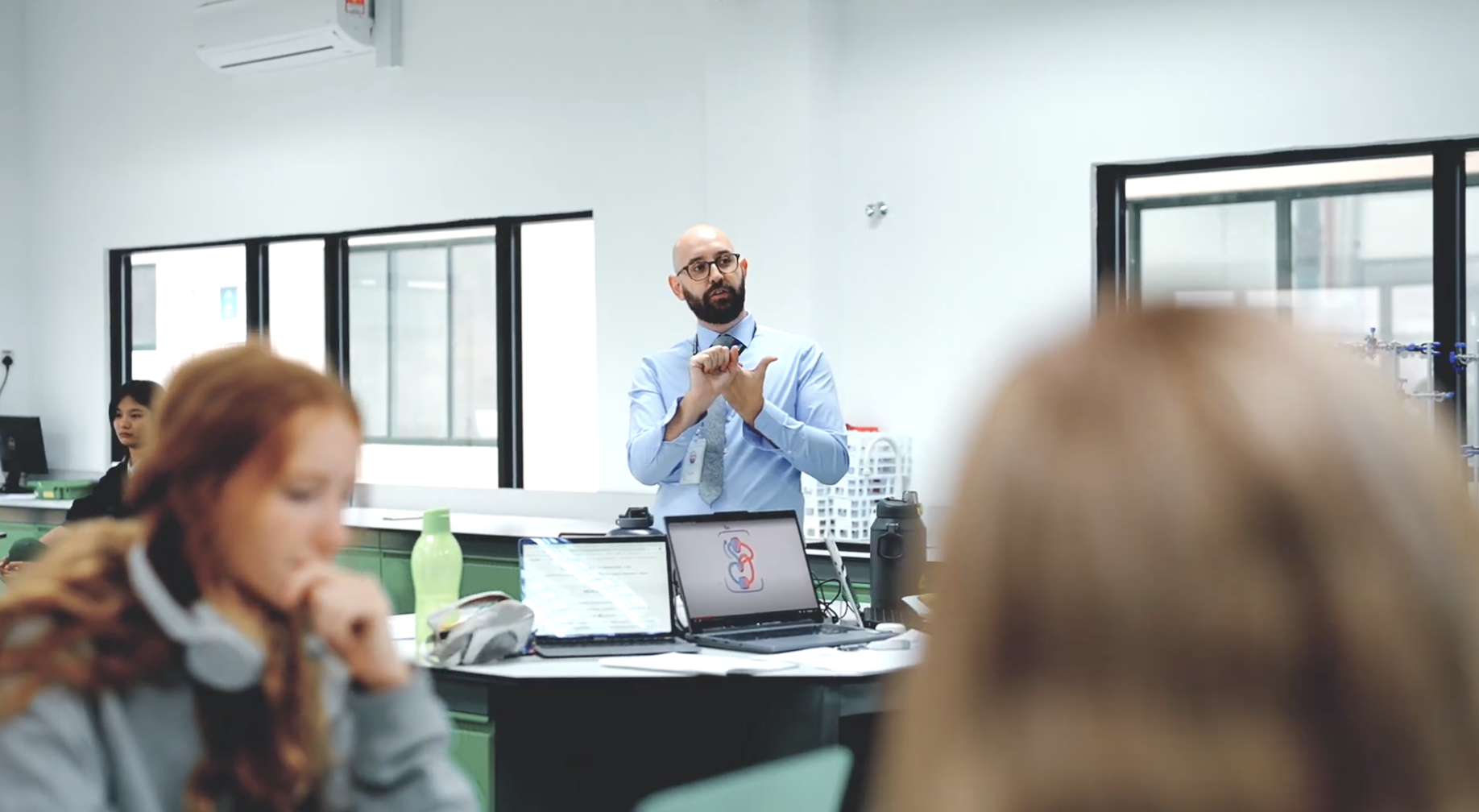

MBL is a well-researched educational approach where students progress upon mastering the subject matter. Unlike traditional learning models, where all students move together at the same pace, MBL ensures that every student understands and grasps each concept before moving forward. This approach has been proven to enhance long-term learning retention and improve academic self-concept and learning behaviours. You can read more about MBL here.
The question we hold in our minds is, “How effective are our students when we (teachers and parents) are not there?” for instance, revising in their bedroom, during their first year of university or at their first job. Our experienced Science teachers are committed to developing research-led teaching practices that yield outstanding results and encourage the development of effective student learning habits. One approach we use is Mastery Based Learning (MBL).
Yes, they will watch videos. Our science team has invested time in pre-recording explanations of concepts, but a mastery-based lesson is much more than this.
Here’s what the typical process is for a student in year 10:
MBL ensures teachers engage with students continuously during lessons while marking occurs separately. These ongoing interactions, paired with more detailed student data, allow our educators to track individual progress through each topic with greater precision, providing targeted support or extension activities as needed. You can see some lessons in action here.
No (and yes)! Practicals are still an integral part of the course; every student is expected to complete ‘core’ practicals. We also offer many ‘extension’ practicals. However, not every topic has practicals - this academic year, our Year 10 programme started with Waves, which does have practicals. Then it moved on to Radioactivity and Particles, which doesn’t for safety reasons. They have just started studying Magnets and Electromagnets, which do have practicals.
This year, students in Year 11 scored higher in their Physics mock (on average) than students did in Chemistry or Biology (7.6 vs 6.5 or 7.2), and this is almost a full grade higher than the mock results from last year’s, mainly traditionally taught, students who scored an average of 6.8.
They also demonstrated greater improvement (on average) transitioning from Year 10 to Year 11 in Physics compared to Chemistry or Biology, with Physics showing an average increase of 0.2.
We constantly review and refine our curriculum, and all the changes are based on student and parent feedback and supported by pedagogy. We've implemented several adaptations this year:
Additionally, we've integrated learning and study skills throughout the curriculum.
We see this in our feedback, and we know that many students say they find being responsible for their own learning difficult at first.

However, we want our students to value active learning, even though passive learning is easier1. Passive learning is less effective, and research shows that even when students know this, they will still pick passive learning over active learning when given the choice. We don't want our children to be afraid of "hardness." MBL is harder, and some of our students do struggle:
Our science team has been working to find a balance between supporting students in building their own strategies and reducing their agency when they struggle to do this.
Regarding promoting independence and self-motivation, key aspects of MBL will be introduced into the middle school curriculum from August 2025. Students may not distinctly feel this change, but there will be subtle tweaks to promote the skills listed above.
We believe in our commitment to providing the highest quality education for our students. MBL is a significant step in ensuring that every student not only learns but masters the essential skills and knowledge they need for future success. If you have further questions, please contact us using the school feedback form.
1You can read more about this in The Harvard Gazette, PNAS and Edutopia.
